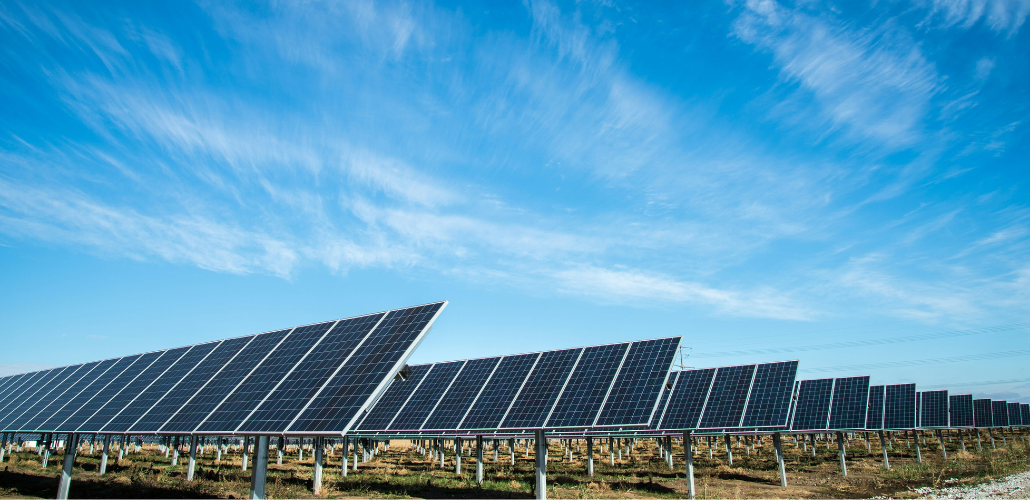Renewable Energy Impact Investing: Navigating Clean Energy in the Age of Policy Uncertainty

By Kofi Kodua, Managing Director
As we move through 2025, one thing is clear: The world of clean energy and impact investing is facing a significant shift. The recent passage of the “One Big Beautiful Bill Act” (OBBBA) has introduced new challenges for clean energy impact investments, with changes to tax incentives and credits that have been a cornerstone of the industry’s growth. While these new legislative moves may leave some investors uncertain about the future of clean energy, they also provide an opportunity to re-evaluate strategies and focus on long-term goals.
What’s Changing in Clean Energy Policy?
In a nutshell, the new bill cuts several key clean energy tax incentives that have been critical in accelerating the growth of renewable energy and energy-efficient projects over the last few years.
Here’s a breakdown of the most significant changes:
- Phase-Out of Clean Energy Credits: The Investment Tax Credit (ITC) and Production Tax Credit (PTC), two of the most important financial incentives for clean energy, are set to expire much sooner than expected. Projects that begin construction after 2026 won’t be eligible for these credits, making it harder for clean energy developers to access affordable capital.
- Loss of Residential Renewable Energy and EV Incentives: Tax credits for things like residential solar installations and electric vehicle (EV) purchases will also begin phasing out by mid-2026, making it more expensive for homeowners to invest in clean energy solutions.
- New Clean Energy Product Regulatory Hurdles: New rules around foreign investment and credit transferability could complicate how clean energy projects are funded, making it harder for developers to raise money.
What Does This Mean for Renewable Energy Impact Investors?
These changes may feel like a setback for the industry, but we need to remember that this is the moment that we, as private investors — and more importantly, as impact investors — are called to rise to the occasion.
By contributing our capital to realizing the mission of sustainable clean energy, with investments in companies like Sunwealth and Coastal Enterprises — both of which fund clean energy projects and are current Clean Yield investments — we can continue to create lasting change. Though pursuing this vision may come with some bumps on the road ahead, it is a road worth traveling to achieve our shared vision for a brighter future.
As clean energy companies adjust to these new challenges, some may struggle with financing, but others will adapt and grow as the world’s demand for clean energy rises. This is where patient, non-extractive, and/or catalytic capital can make a significant difference. As impact investors, we must stay informed about these shifts, as they can present opportunities to realize the long-term impact we seek.
Opportunities in a Changing Landscape
Even as the clean energy landscape shifts, attractive areas of opportunity remain. Sectors like sustainable agriculture and carbon-capture technologies are seeing fewer incentive changes and remain attractive for long-term investment.
Let’s also not lose sight of the fact that the clean energy transition is a global movement. Even with policy changes in the U.S., many countries are increasing their commitment to renewable energy. A recent New York Times opinion piece by Bill McKibben highlights how, despite setbacks in U.S. policy, global momentum for clean energy – especially solar and wind – remains strong. It points out that reduced costs for solar panels, wind power, and batteries are key catalysts driving this momentum, underscoring that clean energy’s future is unstoppable, regardless of short-term policy changes. As impact investors, we must look beyond short-term policy fluctuations and focus on sustainable clean energy development’s broader, long-term opportunities.

Stay up the date with the impact investing landscape with our newsletter.
We integrate a company’s environmental, social, and governance (ESG) profile into our analysis of its financial prospects and stock valuation. We are always looking for ways to maximize the positive impact our clients’ assets can make in the world, whether through proxy voting, shareholder activism, or impact investing.
How We Are Guiding Clients in Renewable Energy Investments
While these changes in legislation present challenges, they also highlight the importance of staying engaged and adaptable as impact investors. Here’s how we at Clean Yield are helping our clients navigate this period of uncertainty:
- Vigilant Due Diligence: Before investing, we closely examine the financial health and regulatory compliance of clean energy projects. Understanding the new tax structures and incentives will be key to making smart investment decisions.
- Advocacy for Policy Change: It’s not just about sitting back and waiting for change to happen. As impact investors, we can advocate for policy changes that support a cleaner, greener future. In fact, Clean Yield recently signed an Open Letter published in The Wall Street Journal alongside other energy investors and industry leaders to preserve federal support for clean energy prior to the passage of the OBBBA. In addition, on June 26, our own Liz Levy attended the Hill Advocacy Day in Washington, D.C., where she joined other members of US SIF to voice concerns about legislation on clean energy, among other matters, such as reduced CDFI funding and shareholder rights. You can read her reflections on Hill Day here.
- Portfolio Diversification: Given the volatility in clean energy, Clean Yield’s impact investing program continues to focus not just on clean energy but on a broad range of community and alternative investments. These include regenerative agriculture, social justice initiatives, racial equity, green chemistry, and sustainable forestry – helping reduce risk while increasing the long-term potential for both financial and social returns.
Our collective voice is powerful, and together, we can drive positive policy changes.
A Critical Moment for Impact Investors
While policy changes like those introduced in the “One Big Beautiful Bill Act” may raise some questions, they don’t change the fact that clean energy remains a critical part of the world’s future. As impact investors, our role in supporting these industries is more important than ever. By staying informed, diversifying our investments, and continuing to advocate for positive change, we can ensure that our investments not only provide the returns needed, but also help build a more sustainable and just world.
At Clean Yield, we are committed to helping our clients navigate these shifts and align their investments with their values. Learn more about how we work.
More News & Insights
Upcoming Speaker Series: The Role of Private Capital in Building Affordable Housing for Resilient Communities
We invite you to join us on March 31 at 3 p.m. ET to participate in this critical conversation on affordable housing.
Proxy Voting: A Critical Tool for Individuals and Investors to Influence Corporate Behavior
Learn how proxy voting gives equity (stock) investors a powerful tool to pressure corporations to act more responsibly.
A New Kind of Meat
Through Clean Yield’s U.S. Sustainable Investment Forum membership, Liz Levy attended a meeting to gain insights on the emerging cultivated meat industry.


